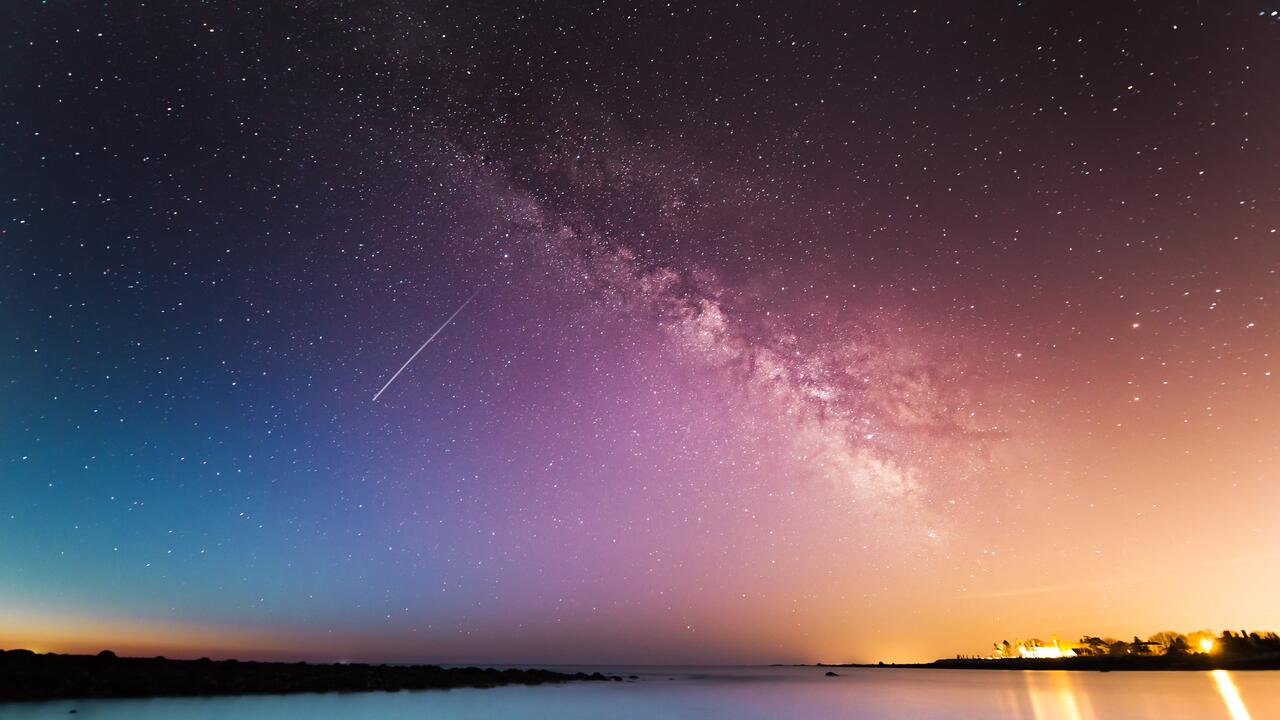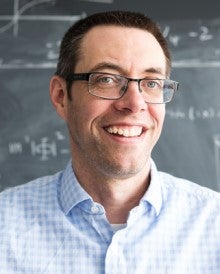
Let’s get Astrophysical
New Waterloo Centre for Astrophysics looks to the cosmos to solve the greatest mysteries of the Universe

New Waterloo Centre for Astrophysics looks to the cosmos to solve the greatest mysteries of the Universe
By Sam Toman University RelationsAstrophysicists can mostly agree that something called dark energy is expanding our Universe at an accelerating rate. That discovery was groundbreaking, but that’s only half the puzzle. Two of the top astrophysicists in the game, Waterloo researchers Will Percival and Mike Hudson, have been chipping away at the question of just how fast it’s accelerating for much of their careers.
The launch of the Waterloo Centre for Astrophysics (WCA) will bring together world-class researchers and students to collaborate and push each other towards the next big discovery in astrophysics. The WCA builds on the Mike and Ophelia Lazaridis Distinguished Chair in Astrophysics, which is held by Will Percival.
 “The intention with the Centre is to provide a research-intensive atmosphere covering a wide range of topics in astrophysics,” said Percival, director of WCA. “I believe that the atmosphere available to researchers is key to the research that they do and the boundaries that they can push. Many discoveries come from, or are built on developments in related fields and thus, it is important that scientists talk to each other, even if they think they are working on different things.”
“The intention with the Centre is to provide a research-intensive atmosphere covering a wide range of topics in astrophysics,” said Percival, director of WCA. “I believe that the atmosphere available to researchers is key to the research that they do and the boundaries that they can push. Many discoveries come from, or are built on developments in related fields and thus, it is important that scientists talk to each other, even if they think they are working on different things.”
Additionally, astrophysics is increasingly dependent on extensive collaborations of scientists working together to perform and analyze experiments. The WCA offers a chance for astronomers at the University to speak with one voice within these collaborations, and to help faculty work together within them.
“The WCA is designed to create this,” said Percival.
The WCA has some serious momentum on its side following the release of the first image of a black hole by the Event Horizon Telescope (EHT) collaboration in which Waterloo’s Avery Broderick had a significant role. That news touched every corner of our little planet and the breakthroughs made here will have an impact on every aspect of life, business and academia — echoing through history for generations to come.
Beyond research and teaching, the WCA will act as a gateway for young aspiring astrophysicists, as well as those in the public who have an interest in learning more about the mysteries of our known Universe.
“I’m very keen to use the WCA to ramp up the public outreach in astronomy,” said Percival. “We’re currently looking at ways to do this, either through a series of public talks or with other outreach initiatives.”
Please join us Friday, October 4th from 4 to 8 p.m. in the atrium of the Quantum Nano Centre for the launch of the Waterloo Centre for Astrophysics. The event features an exclusive cocktail reception where you'll have the opportunity to meet astrophysics faculty and learn more about the thrilling research that promises to redefine our knowledge of the Universe.

Read more
Waterloo Innovation Summit reimagines health with technology

Read more
How a new quantum sensor could improve cancer treatment

Read more
The very first computational human kidney model can help scientists better understand the effectiveness of the drugs we consume
The University of Waterloo acknowledges that much of our work takes place on the traditional territory of the Neutral, Anishinaabeg, and Haudenosaunee peoples. Our main campus is situated on the Haldimand Tract, the land granted to the Six Nations that includes six miles on each side of the Grand River. Our active work toward reconciliation takes place across our campuses through research, learning, teaching, and community building, and is co-ordinated within the Office of Indigenous Relations.